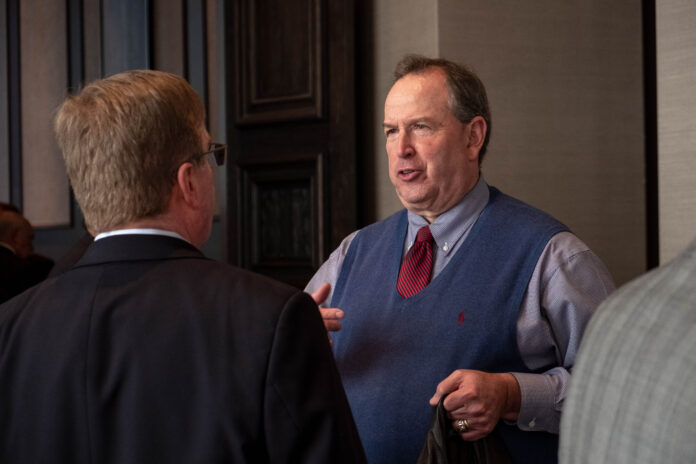A lifelong public servant and dedicated Lenoir resident, Mayor Joe Gibbons has personified what it means to be a local leader.
Among the many local leaders in North Carolina, there exists a small category of people for which it’s difficult to imagine them doing anything else. Lenoir Mayor Joe Gibbons qualifies into that group. He is in many ways public service personified. And still, to see his route as inevitable—that it’s hard to see him doing anything else—may sell short that Gibbons does do quite a bit else, from his local family business to his volunteerism in the community, all of which stand as key components to the larger package.
First, you have the devotion to community. Born and raised in Lenoir, Gibbons says that he never truly considered living anywhere else. “I deeply love this community,” he tells Southern City in a phone interview. Outside of his time at Appalachian State, where he was a four-year scholarship athlete on the football team, Gibbons has been a steady presence in the Caldwell County town. He and his brother joined the family business, Gibbons Electric, shortly after returning home from college.
Second, you have the dedication to involvement. Just living in Lenoir would not be enough, as Gibbons says. The devotion to the town is too great. As such, it’s been a common sight over the past few decades to find Gibbons in any number of different places, usually in a leadership role. Positions include the UNC Health-Caldwell Hospital Board chairmanship and the Caldwell Community College Foundation Board of Directors, in addition to several other seats on associations, government committees, and Rotary Clubs. It extends statewide too, through the NC League of Municipalities, where he served two terms as board member and is the current chair of the Risk Management Board of Trustees, and the NC Mayors Association, where he also is the current chair. Perhaps most important to Gibbons, though, has been his involvement with the local little league, where he coached youth baseball for more than 20 years. “I want to see this city continue to grow and prosper and move forward, and the only way to do that sometimes is to get involved,” Gibbons said. “That’s what I decided to do, and I haven’t regretted a day of it since.”
And third, of course, is the path to the mayor’s seat, paved by both the above dedication and the family history that guided it. Gibbons is part of a local government family. HIs father was the Mayor of Lenoir for 24 years during a time period that covered much of the younger Gibbons’ adult life. The tenure, 1971 to 1995, coincided with drastic economic changes to the state, specifically to the textile industry. Lenoir was not spared. “The furniture industry of the south. That all started changing,” said Gibbons.
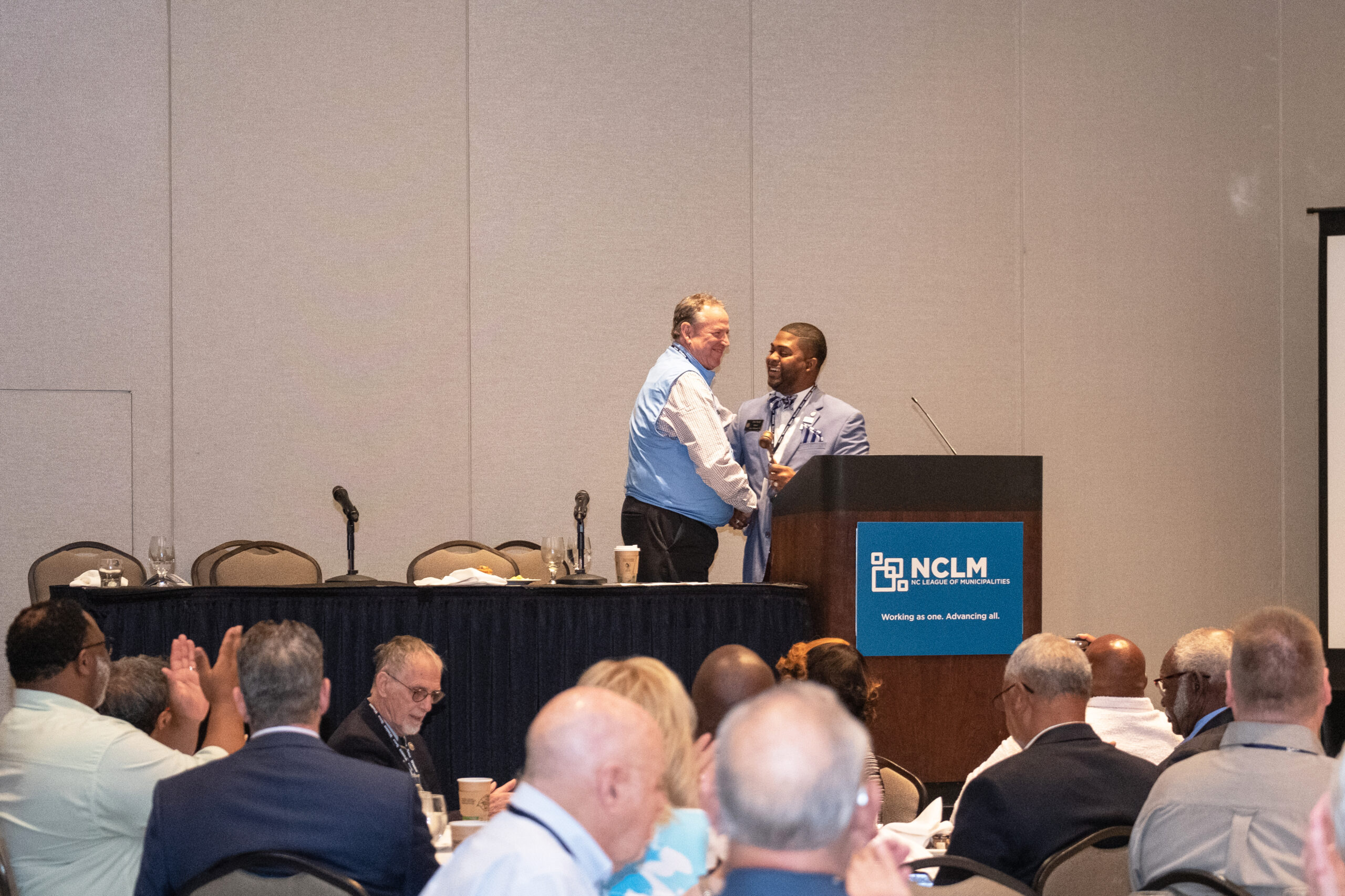
There was no catalyst that spurred Gibbons to take the same, familial route. In fact, it was never in the plans. “It just turned into that,” said Gibbons, noting instead that it was a combination of factors that ultimately led him to elected office. It began simply by observing the decline of his community, made all the more clear by the only four years he spent out of town. “I saw that so many of the things I enjoyed growing up here were gone,” he said. Through a familiarity with the mayor’s office and a nearly lifelong behind-the-scenes glimpse of the machinations of city government, Gibbons understood that governmental service could make a difference.
It began on the planning board. Soon, it moved to the board of adjustment, then to the newly created economic development board, which had a sole focus on what Gibbons considered the biggest issue facing town: a lack of commerce, especially downtown. From there, the next step was elected office in 2005, first as a councilmember, then as Mayor Pro Tem, and ultimately as Mayor. “I’m now into about 35 years serving the City of Lenoir,” Gibbons said. “It was a process, but really it was just wanting to be involved.”
The job of a mayor, or any elected official, is never about a single issue. However, there are priorities, and the issue of economic development has dominated the agenda for most of Gibbon’s time. It is so closely tied to all of the above traits—to the deep knowledge of his hometown and its citizens, and an understanding of what Lenoir once was and what it could be again—and he is quick to note it as both his top achievement and top ongoing goal.
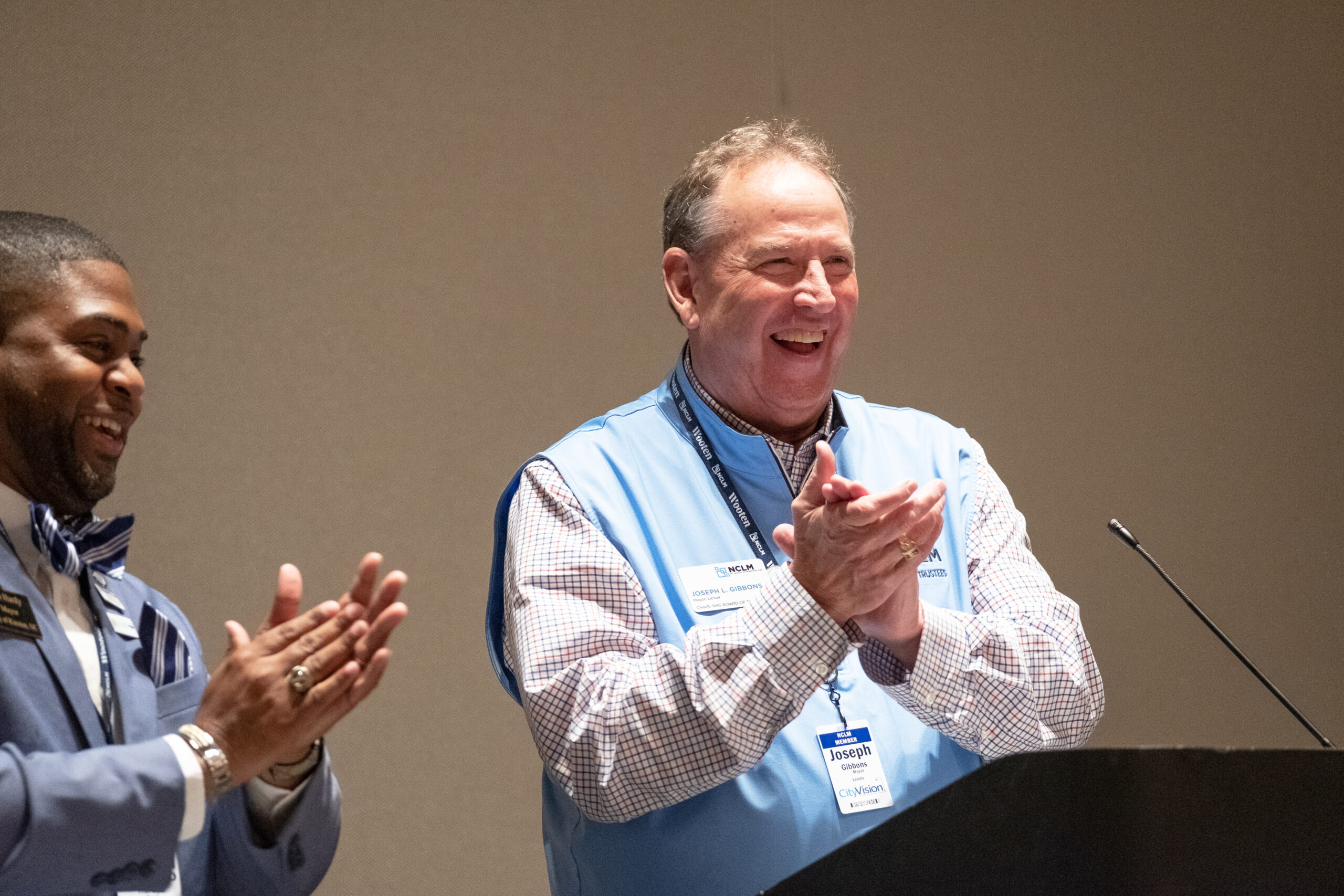 It all starts downtown. “When I first got in, we were seeing the city change,” Gibbons said. Recalling his early days in office, Gibbons remembers downtown as hosting the courthouse, a few city offices, and not much else. There was very little retail or local business. “It had been great while growing up here, but it had gone away.” That status quo created a cascade of problems. Without the hub of an attractive downtown, civic pride had lessened, which sputtered any local momentum to make necessary changes, which meant that the downtown would remain in a state of underinvestment, which meant that the town would lack a key recruitment piece in its efforts to attract new businesses, and on and on. The goal, then, was to reverse that inertia. Gibbons began with a structural focus: new sidewalks, streetscapes, infrastructure investments, and doing all else to make the area so that businesses could—and would want to—operate downtown.
It all starts downtown. “When I first got in, we were seeing the city change,” Gibbons said. Recalling his early days in office, Gibbons remembers downtown as hosting the courthouse, a few city offices, and not much else. There was very little retail or local business. “It had been great while growing up here, but it had gone away.” That status quo created a cascade of problems. Without the hub of an attractive downtown, civic pride had lessened, which sputtered any local momentum to make necessary changes, which meant that the downtown would remain in a state of underinvestment, which meant that the town would lack a key recruitment piece in its efforts to attract new businesses, and on and on. The goal, then, was to reverse that inertia. Gibbons began with a structural focus: new sidewalks, streetscapes, infrastructure investments, and doing all else to make the area so that businesses could—and would want to—operate downtown.
Having a born-and-bred local leading the charge made a difference, Gibbons believes. “The value is, being from here makes you so proud. You want to see it grow and get better. With the background that I had, I got to see how my community was and how I want to see it again.”
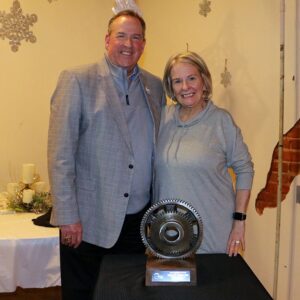
Photo credit: City of Lenoir.
It worked. Momentum built. Businesses slowly started to trickling in. Gibbons then changed the approach to direct business support, and that helped sustain the energy. Soon, downtown had transformed from empty to an asset, and Gibbons and town leadership had a tool with which to keep Lenoir growing. “We had to battle,” Gibbons said. “We could have boarded up our town and said, ‘furniture is all we’ve ever done,’ and we could have quit. But we didn’t. We had to rebuild ourselves.”
To supplement these efforts, Lenoir turned its focus to another asset: its people. A large portion of the community had worked in the furniture industry, but had been slow to transition to other areas of work. Unemployment was a key concern. Gibbons possessed the insight to see that this was not an intrinsic problem, but rather a situational problem. Thus, they could adjust the situation. Lenoir did so by working with the local community college to offer training to former furniture workers to prepare them for different industries. And like with the downtown developments, the benefits extended beyond just the tangible. “We were working to keep our community proud of itself,” said Gibbons.
Success was almost immediately apparent, seen in the recruitment of large industry. In 2007, Google came to town with a $1.2 billion investment in a new data center. “What possessed Google to come to a small community like Lenoir?” said Gibbons. “Well, we had the resources, and we had the employees. We had people they could come in and hire.”
Downtown has been a similarly successful selling point in the recruitment of other businesses, both large and small. It’s not just a nostalgic exercise. Rather, it’s the headline attraction on the tour of town, and perhaps even more important, is a source of pride for the community, which, as Gibbons believes, builds an ongoing willingness to adapt in the face of change. “Once we get companies to visit, it’s not a hard sell.”
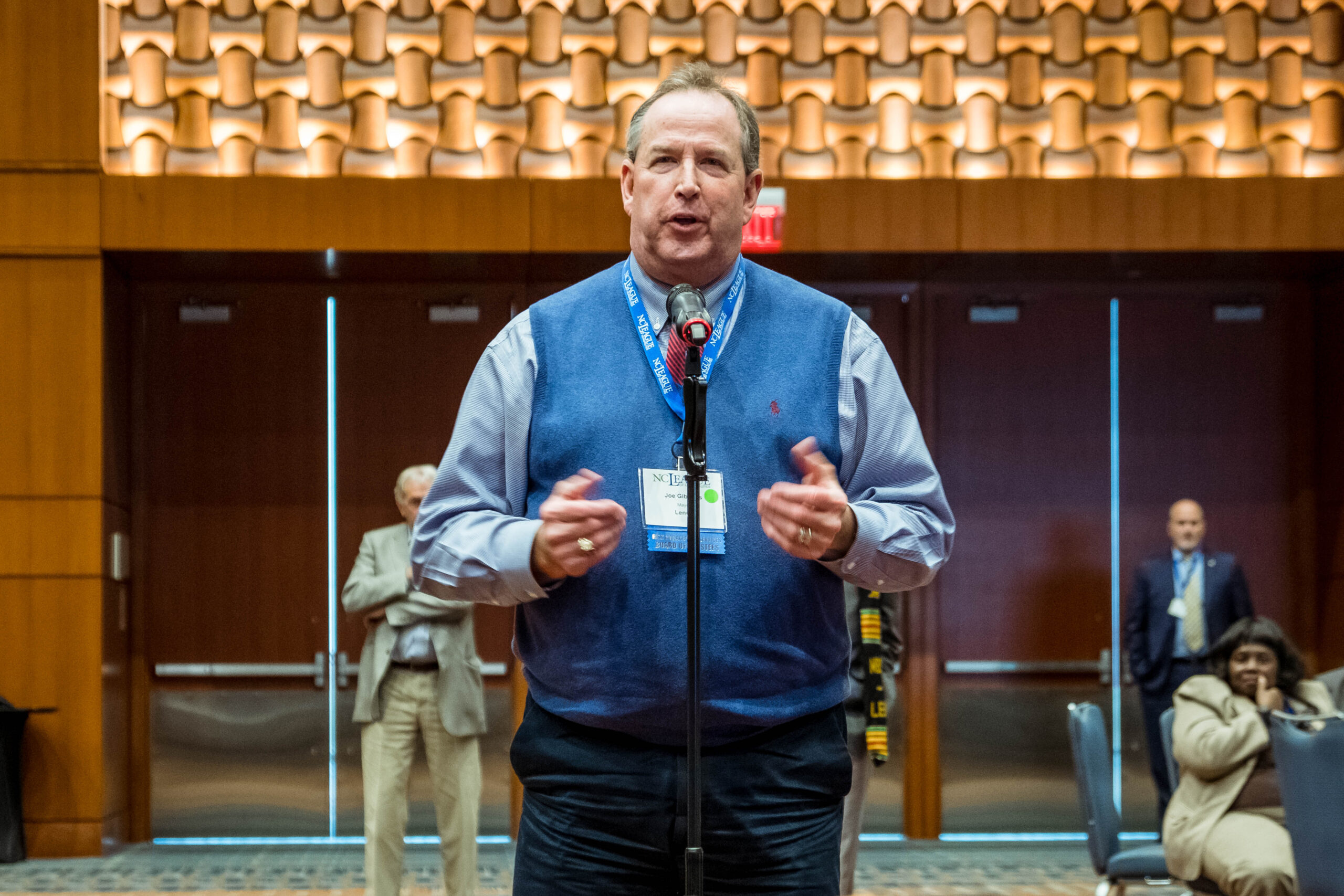 The larger picture of steady success obscures the challenges that arise along the way. Gibbons admits that it’s not always pleasant. “Sometimes I feel like I’m beating my head against the wall,” he said. But it is that larger picture that keeps him on track. “You have to step back. We’ve done so many great things. We’re walking. We’re beginning to run.”
The larger picture of steady success obscures the challenges that arise along the way. Gibbons admits that it’s not always pleasant. “Sometimes I feel like I’m beating my head against the wall,” he said. But it is that larger picture that keeps him on track. “You have to step back. We’ve done so many great things. We’re walking. We’re beginning to run.”
The results of Gibbons’ work are reward enough, but other formal accolades have accumulated over the years. All areas of his life seem to be reflected in the honors. Gibbons was awarded the Governor’s Order of the Long Leaf Pine in 2016, received the LA Dysart Man of the Year award from Caldwell County in 2018, and earned induction into the Caldwell County sports hall of fame in 2010. Additionally, the City of Lenoir has created the “Gibbons Award,” named after Mayor Gibbons and his wife Becky, to honor distinguished service as it relates to downtown development.
But, as Gibbons said, the individual awards are only significant because they mean that the town itself has succeeded. That has always stood as the most important goal.
“I call it my laughing place. The place I love to be,” Gibbons said. “My goal was to bring it back—to see my laughing place return to the way it used to be. And that’s what we’ve done.”


